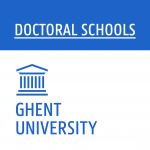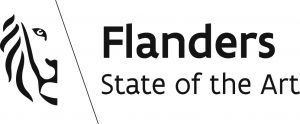 Freddy Tsimba, Centres fermés, rêves ouverts (Tervuren, 2016). Photo credit: Stef Craps
Freddy Tsimba, Centres fermés, rêves ouverts (Tervuren, 2016). Photo credit: Stef Craps
Tuesday 9 September – Pre-Event
Venue: Atrium, Faculty Library of Arts and Philosophy, Rozier 44, 9000 Ghent
18:30–18:45
Registration: Pick up your name tag and a printed copy of the summer school programme.
18:45–20:30
Roundtable – Practicing Memory in Polarized Times
A public panel discussion with memory scholars and activists: Amani El Adad (Gents Kunstenoverleg), Pieter Lagrou (Université libre de Bruxelles), Manoeuvre vzw, Ann Rigney (Utrecht University), and Michael Rothberg (UCLA)
Moderator: Eva Willems (Ghent University)
20:30–22:00
Reception (for Mnemonics participants only)
Wednesday 10 September – Day 1
Venue for all panels: Teresazaal, Het Rustpunt, Burgstraat 110/116, 9000 Ghent
9:00–9:30
Arrival and Coffee/Tea
Registration: Pick up your name tag and a printed copy of the summer school programme.
9:30–9:45
Welcome and Opening Remarks
Stef Craps (Ghent University), Silvana Mandolessi (KU Leuven), and Pieter Vermeulen (KU Leuven)
9:45–11:00
Keynote Lecture 1
Carlos Fonseca (University of Cambridge) – “Theatres of Memory: From Testimonio to the Forensic Paradigm”
Chair: Stefano Bellin (Pompeu Fabra University)
11:00–11:30
Coffee/Tea Break
11:30–13:00
Panel 1 – Ecological Legacies: Memory, Extraction, and Infrastructures
Chair: Hanna Teichler (Goethe University Frankfurt)
- Patricia Georgina Rico León (Universidad Complutense de Madrid) – “Interwoven Memories: Accountable Responses to Extractivism in Recent Latin American Literature”
- Ann Pei (University of Illinois, Urbana-Champaign) – “Haunted Freeways: Petro-Infrastructure, Memory, and Resistance in Tropic of Orange”
- Aviva Weizman (York University) – “Responsibility in Retrospect and the Reconstruction of Memory: Lessons from Stari Most”
Respondent: Rick Crownshaw (Goldsmiths, University of London)
13:00–14:00
Lunch
Venue: Het Rustpunt
14:00–15:30
Panel 2 – Unpacking Complicity: Perpetrators and Implicated Subjects
Chair: Tea Sindbæk Andersen (University of Copenhagen)
- Irene Piedrahita-Arcila (University of Glasgow) – “Complexities of Perpetrators’ Responsibilities in the Colombian Armed Conflict”
- Eeva Langeveld (Radboud University Nijmegen) – “Comics Exposing White Innocence: The Dutch Figure of Black Pete and Denied Implication”
- Bhagyashri Vyasaramacharya (Goethe University Frankfurt) – “Shifting Memorabilities and Responsibilities: Tracing Narratives of the Bengal Famine of 1943”
Respondent: Wulf Kansteiner (Aarhus University)
15:30–16:00
Coffee/Tea Break
16:00–17:30
Panel 3 – Colonial Legacies and Pathways to Redress: Memory, Justice, and Accountability
Chair: David Mwambari (KU Leuven)
- Marit van de Warenburg (Utrecht University) – “Spirituals for Solidarity? Re-using Songs to Address Racial Injustice”
- Rita Elizabeth Maricocchi (University of Münster) – “‘schon wieder?’ Conceptualizing the Cultural Memory of German Colonialism as a ‘Culture of Surprise’”
- Thea Bladt (Aarhus University) – “Democratic Memory: A Potential Framework for Comparing Redress Activities”
Respondent: Michael Rothberg (UCLA)
17:45–18:45
Mnemonics Business Meeting (for senior representatives of Mnemonics partner institutions only)
Chair: Stef Craps (Ghent University)
18:00–…
Dinner (free time)
Feel free to explore Ghent’s culinary scene—participants are expected to make their own dinner plans.
Thursday 11 September – Day 2
Venue for all panels: Teresazaal, Het Rustpunt, Burgstraat 110/116, 9000 Ghent
9:00–9:30
Arrival and Coffee/Tea
9:30–11:00
Panel 4 – Intergenerational Trauma and Filial Responsibility
Chair: Barbara Törnquist-Plewa (Lund University)
- Jeanne Devautour Choi (Columbia University) – “‘Elucidate Our Parents’ Past like Detectives’: The Hijes’ Generational Mnemonic Duty in Patricio Pron’s El Espíritu de mis padres”
- Konstantina Tsoleridou (Goethe University Frankfurt) – “Responsibility to Memory, Responsibility to Truth: Competing Imperatives in Thea Halo’s Not Even My Name (2000)”
- Caron Toshiko Monica (Goldsmiths, University of London) – “Unveiling Undocumented Legacy: Visual Storytelling and Post-Memory of Javanese Descendants in Suriname”
Respondent: Jessica Ortner (University of Southern Denmark)
11:00–11:30
Coffee/Tea Break
11:30–13:00
Panel 5 – Mediating Memory: Ethical Storytelling and Digital/Visual Resistance
Chair: Victoria Fareld (Stockholm University)
- Atieh Asadollahi (KU Leuven) – “Memory, Trauma, and Responsibility: The Ethics of Palestinian Narratives in Digital Memory Cultures”
- Bahar Sarıoğlu (Royal Holloway, University of London) – “‘You Are Not Even Allowed Access to Your Own Image’: Cinematic Responsibility and the Ethics of Memory in A Fidai Film”
- Marie Theresa Crick (Goldsmiths, University of London) – “Embodied Methodologies in Memory Studies: Bridging Responsibility, Reparative Action, and Ethical Narratives”
Respondent: Astrid Erll (Goethe University Frankfurt)
13:00–14:00
Lunch
Venue: Het Rustpunt
14:00–15:15
Keynote Lecture 2
Sara Dybris McQuaid (Aarhus University) – “Relocating Responsibility: Administrations of Memory in the Vernacular”
Chair: Eva Willems (Ghent University)
15:15–15:45
Coffee/Tea Break
15:45–17:15
Panel 6 – Holocaust Memory and Educational Responsibility
Chair: Stefano Bellin (Pompeu Fabra University)
- Nadja Felten (Lund University) – “Teaching the Holocaust, Teaching Democracy: Narrating Memory and Shaping Perceptions of Relevance in Swedish Classrooms through Curricula and Teaching Materials”
- Marianne Kirk (University of Copenhagen) – “Beyond ‘Never Again’: Variations of Holocaust Education and Responsibility in Danish History Classrooms”
- Natalie Heidaripour (Newcastle University) – “Interactions of Memory, Responsibility, Empathy and Discomfort at the Museum of Free Derry and America’s Black Holocaust Museum”
Respondent: Brett Ashley Kaplan (University of Illinois, Urbana-Champaign)
17:15–17:30
Coffee/Tea Break
17:30–18:30
Professionalization Session – Ask Me Anything: Building a Career in Memory Studies
Facilitator: Guido Bartolini (Ghent University)
With early-career and senior scholars from the Mnemonics network
19:00–22:00
Summer School Dinner
Venue: Restaurant Brasserie Uilenspiegel, Korte Kruisstraat 3, 9000 Ghent
Friday 12 September – Day 3
Venue for all panels: Teresazaal, Het Rustpunt, Burgstraat 110/116, 9000 Ghent
8:30–9:00
Arrival and Coffee/Tea
9:00–10:15
Keynote Lecture 3
Hanna Meretoja (University of Turku) – “Memory as Interpretation: The Approach of Narrative Hermeneutics”
Chair: Guido Bartolini (Ghent University)
10:15–11:45
Panel 7 – Multiperspectival Memory: Ethics and Engagement across Narrative Forms
Chair: Pieter Vermeulen (KU Leuven)
- Shivani Arulalan Pillai (University of Oxford) – “‘Read it as you will’: Palimpsestic Memory and Imperial Ruination in Orhan Pamuk’s Silent House”
- Gabriele D’Amato (Ghent University) – “Ethical Uncertainty in Multiperspective Fictions of Memory”
- Sara Morini (Sapienza University of Rome) – “Virtual Histories, Real Consequences: Memory, Ethics, and War in Japanese and Taiwanese Historical Games”
Respondent: Ann Rigney (Utrecht University)
11:45–12:15
Coffee/Tea Break
12:15–13:45
Panel 8 – Confronting Violent Pasts: Exile, Responsibility, and Generational Memory
Chair: Eva Van Hoey (Ghent University)
- Jorn Verschuere (Ghent University) – “From Sacrifice to Healing: Resistant Memory Practices in Nicaraguan Exile”
- Janel Pineda (UCLA) – “(Re)memory, Responsibility, and Transborder Solidarity: The Necessary Work of Unforgetting in Contemporary Salvadoran Poetics”
- Sophie Pousette (Södertörn University) – “Taking Responsibility for the Future of the Past”
Respondent: Silvana Mandolessi (KU Leuven)
13:45–14:30
Lunch
Venue: Het Rustpunt
14:30–16:00
Decolonial Walking Tour of Ghent (Group 1)
Led by Collectif Mémoire Coloniale et Lutte contre les Discriminations
16:30–18:00
Decolonial Walking Tour of Ghent (Group 2)
Led by Collectif Mémoire Coloniale et Lutte contre les Discriminations
 |
 |
 |
